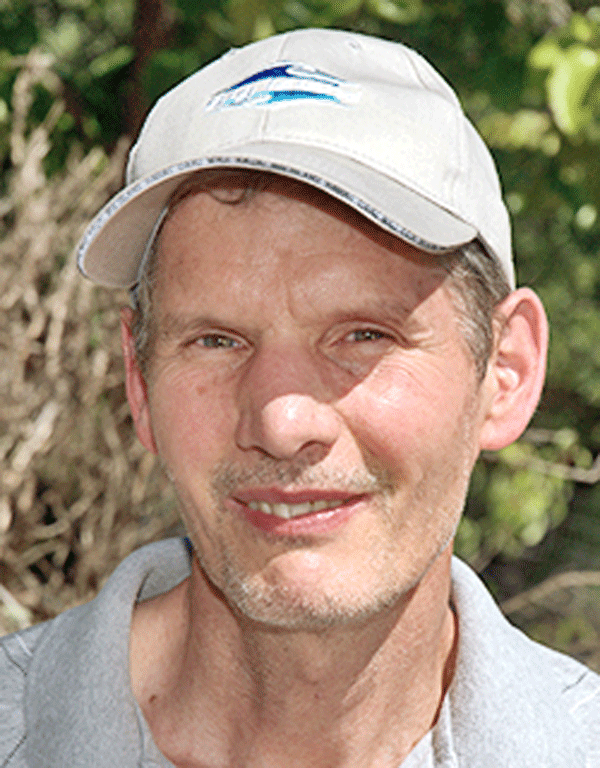A Scotts Valley resident is raising earthworms for healthy composting.
“I find it really fascinating and fun to watch the worms growing and living in what we call ‘waste,’” said Stafford Warren, software consultant by day, and vermiculture enthusiast for the last seven years. “Literally, what we call ‘waste’ is home to other critters.”
Warren cites his love of nature, concern for the environment, and desire to reduce waste as motivation for his home driveway worm-box hobby. His goal is to reduce the buildup of methane gas in urban landfills by redirecting organic, edible plant shavings and spoilage — which he gleans from grocery outlets such as New Leaf Market in Felton — into his nursery crib containing mostly red worms or Eisenia fetida.
Obviously, the medium serving as this wildlife’s home is of itself an excellent treasure trove of farm-worthy compost, turning over time into nutrient-rich topsoil replacement for limited application on small crop projects
However, the center of Warren’s attention is not the warm wet combination of dirt and garden refuse itself, but rather its indigenous community of what people prefer to think of as a primitive life form. The deep murky scarlet ‘vermin’ are intrinsic to the process of turning, over time, this perfect culture of animal and mineral into a self-perpetuating environment — all natural and free of pesticide and other chemical abuse.
“It is important for people to be aware of where their food comes from and where their waste goes to. Everyone should compost,” he said, adding that local interested residents can get their own free worm bin from their waste management provider.
Warren even has a few odd pieces of lumber lying on top of the mounds as a “kind of experiment,” — hoping that lizards or other reptiles native to the Hidden Glen neighborhood of Scotts Valley may make them their home.
Although he only has two or three worm buyers a month, Warren also provides free individual worms to schools and elementary teachers for their science classes.
“The fun ones are teachers doing projects with grade school classes,” he explained. “Usually, they are composting leftover food from their lunches.”
As for Warren’s engagement in this low intensity labor of love, he finds it to be a healthy diversion. “Worm composting is how I balance out my (high stress) brain job” with his off hours.
E-mail Stafford Warren at sw*******@***il.com if you are interested in buying a pound or two for home, business or school use.













